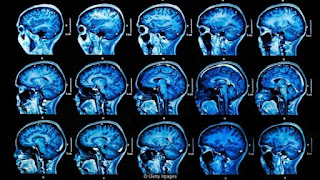Treatment for Relapsing-remitting MS
- Beta interferons. These medications are among the most commonly prescribed medications to treat MS.
- Ocrelizumab (Ocrevus). This humanized immunoglobulin antibody medication is the only DMT approved by the FDA to treat both the relapse-remitting and primary progressive forms of MS. Clinical trials showed it reduced relapse rate in relapsing disease and slowed worsening of disability in both forms of the disease.
- Glatiramer acetate (Copaxone). This medication may help block your immune system's attack on myelin and must be injected beneath the skin. Side effects may include skin irritation at the injection site.
- Dimethyl fumarate (Tecfidera). This twice-daily oral medication can reduce relapses. Side effects may include flushing, diarrhea, nausea and lowered white blood cell count.
- Fingolimod (Gilenya). This once-daily oral medication reduces relapse rate.
- Teriflunomide (Aubagio). This once-daily medication can reduce relapse rate. Teriflunomide can cause liver damage, hair loss and other side effects.
- Natalizumab (Tysabri). This medication is designed to block the movement of potentially damaging immune cells from your bloodstream to your brain and spinal cord.
- Alemtuzumab (Lemtrada). This drug helps reduce relapses of MS by targeting a protein on the surface of immune cells and depleting white blood cells.
- Mitoxantrone. This immunosuppressant drug can be harmful to the heart and is associated with development of blood cancers.
#May30th #WorldMSDay International Conference on Alzheimers, Dementia and Related Neurodegenerative Diseases is coming up with a session on Multiple Sclerosis... Submit your abstracts to be a part of the conference and to present your work... Submit via: https://alzheimers-dementia.pulsusconference.com/abstract-submission




Comments
Post a Comment